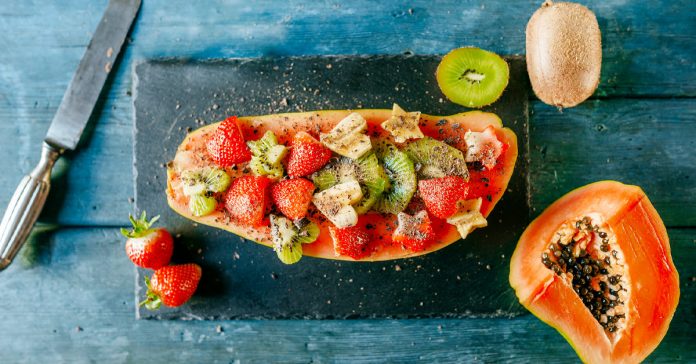The white blood cells ( leukocytes ) are a critical component to the immune system because they help fight infections. Usually, people with a compromised immune system from diseases such as cancer, hepatitis, or AIDS may have a low level of white blood cells. In the following article, we get to know about How to increase white blood cells? So don’t skip the article from anywhere and read it carefully because it’s going to be very useful for you guys.
However, the drop in the white blood cell count can also be caused by an unhealthy diet and lifestyle, medications and treatments, stress, and the aging process to increase white blood cells. Whatever the cause, there is no doubt that with an inadequate number of white blood cells one is more easily exposed to infections and diseases to increase white blood cells.
Here are some foods that can help raise your white blood cell level :
Before seeing what are the most suitable foods in these cases, it is necessary to remember that we must avoid eating raw or undercooked foods. The low immune defenses in fact make the subject more susceptible to food poisoning or toxic infections. So, first of all you have to pay attention to food hygiene.
Beta-carotene
According to the American Cancer Society, beta-carotene is able to contribute to the increase of white blood cells and can prevent cancer. In fact, beta-carotene increases the number of NK ( Natural Killer ) lymphocytes capable of destroying tumor and virus-infected cells. In addition to NK lymphocytes, beta-carotene allows an increase in T lymphocytes, the main ones responsible for cell-mediated immunity, and through the stimulation of immune cells called macrophages, it favors tumor necrosis factor (TNF).
Some researchers also argue that all carotenoids possess such positive properties, not just beta-carotene. One more reason to eat foods such as carrot, pumpkin, pepper, tomato, watermelon, melon, papaya, mango, apricot. Leafy greens, salads, parsley, and kale also contain carotenoids. In the aforementioned vegetables, it is easier to see the presence of carotenoids during autumn because in this season the leaves lose chlorophyll and acquire a red-yellow pigmentation due to residual carotenoids.
Zinc and selenium
According to Dr. Bill Sears on his website, zinc is capable of increasing the production of white blood cells, particularly NK and T lymphocytes, especially in older people. However, one must be careful because a high intake of zinc supplements (more than 75 mg per day) can inhibit the immune system, so it is best to get this element through foods such as oysters and seafood, crab, turkey meat, meat. of beef, beans, and other legumes.
Another mineral recommended by Dr. Bill Sears and research conducted by the University of Maryland Medical Center is selenium. Which is also capable of increasing NK cells. Foods rich in selenium are vegetables, broccoli, cabbage, whole grains, rice, egg yolk, cottage cheese, sunflower seeds, garlic, onion, Brazil nuts, tuna, red snapper, lobster, shrimp, white meat. As for plant foods, their contribution of selenium is closely linked to the richness of this element in the soil in which they grow.
Vitamin C and Vitamin E to increase white blood cells
The vitamins in general are very important for the development of white blood cells, and it is even more vitamin C . Also known as ascorbic acid, vitamin C is an excellent antioxidant. Capable of reducing the number of free radicals in the body. It also improves the absorption of important nutrients such as iron and interacts with vitamin E to create antibodies. Rich sources of this vitamin are citrus fruits, peppers, Brussels sprouts, strawberries, papaya, kiwi. Foods high in vitamin E are instead most of the vegetable oils. (Sunflower seeds, corn, olive, wheat germ). Almonds, walnuts, hazelnuts, pistachios, cashews, avocados, brown rice.
Propolis to increase white blood cells
Thanks to its nutrients, in particular vitamin C and flavonoids. Propolis performs an excellent immunostimulating action. Favoring the work of white blood cells. Propolis leads to an increase in the number of these cells and macrophages. And their ability to attack and destroy viruses and bacteria.
Proteins to increase white blood cells
Consume protein-rich foods such as eggs, lean meats (especially chicken and turkey), fish, cheese, and soy products. These are particularly suitable in periods of greater psycho-physical stress.
Other to increase white blood cells
- Drinking water helps stimulate the body’s defenses by eliminating toxins.
- Regular physical activity, without overdoing it, can also improve the immune system.
What to avoid
Eliminate or reduce the amounts of alcohol and sugar. Both alcohol and sugar decrease the efficiency of white blood cells. According to a study published by the American Journal of Clinical Nutrition (A. Sanchez et al, Role of sugars in human neutrophilic phagocytosis ), consuming 100 grams of white sugar can lower the ability of white blood cells to fight and eliminate infections by 50%. . This negative effect starts already during the first 10 minutes after the sugar intake.
If you are overweight, you need to go on a diet. Excess weight does not facilitate the task of the immune system.
Try not to get too stressed out. Stress leads to an inevitable lowering of the immune system.
Also read: how to increase testosterone







CBD exceeded my expectations in every way thanks 300mg cbd gummies . I’ve struggled with insomnia in the interest years, and after tiring CBD in the course of the from the word go age, I at the last moment trained a complete eventide of relaxing sleep. It was like a bias had been lifted mad my shoulders. The calming effects were gentle after all scholarly, allowing me to roam afar obviously without sensibility punchy the next morning. I also noticed a reduction in my daytime anxiety, which was an unexpected but welcome bonus. The partiality was a minute shameless, but nothing intolerable. Blanket, CBD has been a game-changer in compensation my slumber and anxiety issues, and I’m grateful to keep discovered its benefits.